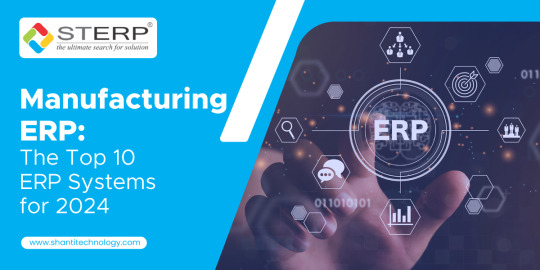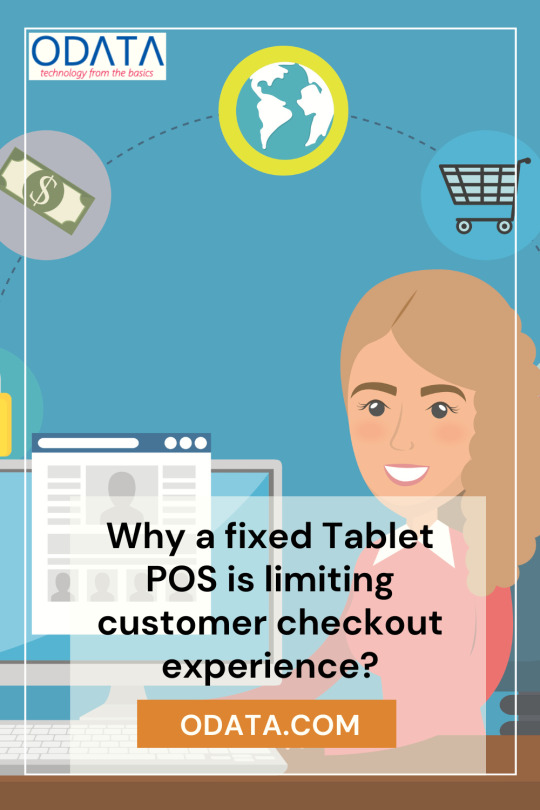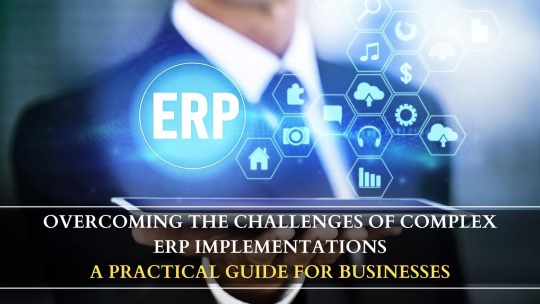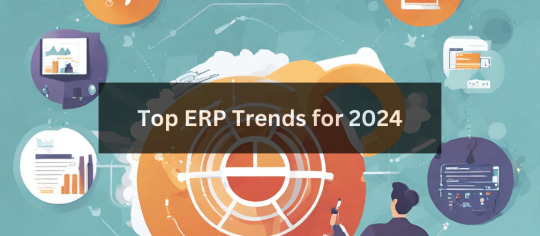#erp solutions for small businesses
Explore tagged Tumblr posts
Text
ERP Software Development
In today’s fast-paced business environment, efficiency and precision are paramount. One of the most effective ways to achieve this is through the use of ERP Software.
#software development#appdevelopmentcompany#software#erp software#erp solution#softwaredevelopment#erp for small business#business
3 notes
·
View notes
Text
Manufacturing ERP: The Top 10 ERP Systems for 2024
Introduction:
In the dynamic landscape of the manufacturing industry, the right technology can make all the difference in streamlining processes and enhancing overall efficiency. Manufacturing Enterprise Resource Planning (ERP) systems have become indispensable tools for businesses seeking to integrate various facets of their operations seamlessly. As we step into 2024, the demand for robust ERP solutions continues to grow. In this blog, we will explore the top 10 Manufacturing ERP systems that are poised to make a significant impact on the industry this year.

1. SAP S/4HANA: Pioneering Manufacturing Resource Planning System
One of the most trusted names in ERP, SAP S/4HANA stands out as a comprehensive Manufacturing Resource Planning System. Its real-time analytics, integrated modules, and intelligent automation make it an ideal choice for businesses aiming to optimize their manufacturing processes.
2. Oracle ERP Cloud: Empowering Manufacturing Enterprise Resource Planning
Oracle ERP Cloud offers a scalable and flexible solution for manufacturing enterprises. With its robust features, it caters to the diverse needs of businesses, ensuring a seamless integration of manufacturing operations. Its cloud-based architecture provides the agility required for modern manufacturing environments.
3. Microsoft Dynamics 365: A Versatile ERP Solution
Microsoft Dynamics 365 is gaining prominence as a Manufacturing Enterprise Resource Planning software that offers versatility and integration capabilities. Its user-friendly interface and interoperability with other Microsoft products make it an attractive choice for businesses, especially small enterprises.
4. Infor CloudSuite Industrial: Tailored Manufacturing ERP
Infor CloudSuite Industrial is designed with the unique needs of manufacturers in mind. It provides specialized functionalities, including supply chain management and shop floor control, making it a standout choice among ERP solution providers.
5. NetSuite ERP: Unifying Manufacturing Operations
NetSuite ERP is recognized for its ability to unify diverse manufacturing operations into a single, cohesive system. Its cloud-based platform allows for real-time collaboration and data accessibility, making it an efficient Manufacturing Enterprise Resource Planning Software.
6. Epicor ERP: Driving Growth for Small Businesses
Epicor ERP is particularly well-suited for small businesses in the manufacturing sector. With its focus on driving growth and improving efficiency, Epicor ERP offers a cost-effective solution without compromising on essential features.
7. IFS Applications: Comprehensive ERP Solution
IFS Applications is a comprehensive ERP solution that covers a wide range of manufacturing processes. Its modular structure allows businesses to tailor the system according to their specific requirements, making it a preferred choice for Manufacturing Enterprise Resource Planning.
8. IQMS Manufacturing ERP: Enhancing Shop Floor Control
IQMS Manufacturing ERP is distinguished by its emphasis on shop floor control and real-time monitoring. It empowers manufacturers with tools to optimize production processes and make informed decisions, positioning it as a top choice among ERP solution providers.
9. Acumatica Cloud ERP: Scalability for Growing Businesses
Acumatica Cloud ERP stands out for its scalability, making it an ideal choice for growing manufacturing businesses. With a flexible platform and advanced features, Acumatica supports businesses in adapting to changing demands and expanding their operations seamlessly.
10. SYSPRO ERP: Tailored for Manufacturing Success
SYSPRO ERP is tailored to meet the specific needs of manufacturing industries. Its focus on delivering a user-friendly experience and addressing industry challenges positions it as a reliable choice for Manufacturing Enterprise Resource Planning.
Conclusion:
As manufacturing industries evolve, the importance of robust ERP systems cannot be overstated. The top 10 ERP systems highlighted in this blog represent the cutting edge of technology, offering solutions that cater to the unique demands of the manufacturing sector. Whether it's SAP S/4HANA's real-time analytics, Oracle ERP Cloud's scalability, or Acumatica Cloud ERP's flexibility, each system brings its own strengths to the table.
For businesses in Madhya Pradesh seeking Manufacturing Software for Small Business, these ERP solutions provide a pathway to enhanced productivity and streamlined operations. Choosing the right Manufacturing ERP system is a critical decision that can impact a company's growth and competitiveness. Evaluate the features, scalability, and industry focus of each system to find the perfect fit for your manufacturing enterprise. Embrace the power of ERP in 2024 and position your business for success in the ever-evolving landscape of manufacturing technology.
#Manufacturing Software for Small Business#Manufacturing Enterprise Resource Planning Software#ERP Solution Providers in Madhya Pradesh#Manufacturing Enterprise Resource Planning#Manufacturing Resource Planning System#ERP Software#Chain Cycle Management#Business#Engineering#Manufacturing#India#Madhya Pradesh#Go-To-Market#GTM#ERP
7 notes
·
View notes
Text
Erpnext is a Oman VAT erp system in Muscat Oman
#erp software#erp solution#best erp for small business 2024#erp systems#marketing#finance#accounting#crm software
6 notes
·
View notes
Text
#retail pos solutions#erp for retail business#cloud retail erp software#retail pos software#retail pos system software#cloud it solutions#cloud based erp solutions#erp software solutions#business software solutions#software solutions company#Field Service Management Solution#erp for small business#cloud erp#erp implementation#erpcompany#erpdevelopment#canada#erpsolutions#sap erp#erp#erp software
2 notes
·
View notes
Text

Accelon Technologies is your trusted SAP Business One Partner in Delhi, helping businesses simplify operations, enhance efficiency, and drive growth. Our expert team specializes in SAP Business One implementation, customization, and support to ensure seamless integration with your business processes. Whether you need ERP consulting, data migration, or industry-specific solutions, we tailor SAP Business One to meet your unique needs. With real-time insights, automation, and streamlined workflows, we empower businesses to make informed decisions and stay competitive.
#SAP Business One#SAP Business One Partner#SAP Business One Delhi#ERP Software#Business Automation#SAP Partner Delhi#Accelon Technologies#ERP Consulting#Business Growth#Enterprise Solutions#SAP Implementation#Cloud ERP#Small Business ERP#SAP Customization#Digital Transformation
1 note
·
View note
Text
Transforming Growth with Cloud ERP Solutions: A Guide for Businesses
In today’s fast-evolving business world, agility, efficiency, and scalability are important for maintaining a competitive edge. Cloud ERP solutions have emerged as a game-changing technology, enabling organizations to smooth operations, enhance decision-making, and drive growth. Whether you’re a small business aiming for operational excellence or an enterprise scaling its processes, adopting the best cloud ERP systems can transform your operations.
What is Cloud ERP?
Cloud ERP (Enterprise Resource Planning) refers to ERP software hosted on cloud platforms, offering businesses access to critical applications via the internet. Unlike traditional on-premises ERP systems, cloud ERP eliminates the need for hefty hardware investments and provides smooth updates, ensuring businesses stay ahead in their operational capabilities.
By integrating functions such as finance, human resources, supply chain, and customer relationship management into a single system, cloud ERP solutions enable businesses to unify their operations and enhance productivity.
Why Choose the Best Cloud ERP?
Selecting the best cloud ERP is essential for maximizing benefits and addressing your unique business needs. Here's why businesses are gravitating toward cloud ERP platforms:
Cost Efficiency : Cloud ERP systems operate on a subscription model, eliminating significant upfront capital expenditures. This makes them especially beneficial for small businesses seeking cost-effective solutions.
Scalability and Flexibility : The best cloud ERP platforms grow with your business. Whether you’re adding new users, integrating advanced features, or expanding into new markets, cloud ERP adapts to your evolving needs.
Enhanced Security : Leading providers of cloud ERP solutions implement robust security measures, including data encryption, regular backups, and compliance with global standards. This ensures your sensitive business data is safe.
Real-time Insights : Cloud-based ERP solutions offer real-time data analytics, empowering businesses to make informed decisions quickly. With centralized data, businesses gain a holistic view of operations and can identify areas for improvement.

Benefits of Cloud ERP for Small Businesses
Small businesses often face challenges such as limited budgets, resource constraints, and the need to remain competitive. Cloud ERP systems are a lifeline for these enterprises, offering tailored solutions that cater to their specific requirements. Here’s how the best cloud ERP for small businesses can make a difference:
Affordability: Small businesses can access enterprise-grade tools without breaking the bank, thanks to the pay-as-you-go model.
User-Friendly Interfaces: Simplified interfaces and intuitive dashboards reduce the learning curve, allowing teams to quickly adapt and utilize the system effectively.
Automation and Efficiency: Automating routine tasks such as inventory tracking, invoicing, and payroll management frees up resources to focus on strategic growth initiatives.
How to Choose the Right Cloud ERP Solution
With a plethora of cloud ERP solutions in the market, selecting the right one can be daunting. Here are some factors to consider:
Business Requirements: Identify your core operational needs. For example, small businesses may prioritize affordability and simplicity, while enterprises may focus on advanced analytics and integration capabilities.
Customization and Integration: Choose a system that can integrate seamlessly with your existing tools and customize workflows to align with your processes.
Vendor Reputation: Opt for providers known for their reliability, customer support, and innovative features. Reading reviews and testimonials can provide valuable insights.
Scalability: Ensure the solution can accommodate future growth without requiring a system overhaul.
Why Cloud ERP is the Future
The shift to cloud-based solutions is no longer a trend but a necessity. As businesses increasingly rely on digital transformation, the flexibility and efficiency offered by cloud ERP systems make them indispensable. Whether you’re exploring the best cloud ERP for small businesses or evaluating enterprise-level solutions, adopting this technology is a strategic move to future-proof your operations.
Conclusion
Cloud ERP solutions are revolutionizing the way businesses operate, providing them with the tools they need to succeed in a competitive environment. By choosing the best cloud ERP to your needs, you can optimize operations, reduce costs, and gain a competitive edge. For small businesses, the accessibility and affordability of cloud ERP make it an invaluable asset.
As your business grows, investing in a reliable cloud ERP solution ensures you stay agile, efficient, and prepared to tackle the challenges of tomorrow.
0 notes
Text
#technews#Enterprise Resource Planning (ERP)#ERP Solutions#Business Management Software#Integrated Business Applications#Supply Chain Management#Customer Relationship Management (CRM)#Financial Management Systems#Human Resources Management#Inventory Management Software#Manufacturing Resource Planning#Cloud ERP Solutions#On-Premise ERP Systems#ERP Implementation Services#ERP Consulting#ERP Software for Small Business#ERP Software for Manufacturing#ERP System Integration#ERP Software Development#ERP Customization Services#ERP Training and Support
0 notes
Text
Low-Cost ERP for Small Businesses in India
ERP for Small Businesses
With the firms today seeking to reduce costs while at the same time expanding in the emerging and competitive market structure in India, small businesses are no exception. For purposes of this paper, Enterprise Resource Planning (ERP) systems that used to be available to only large organizations have become relevant systems for small enterprises. This blog goes beyond merely explaining low-cost ERP adoption for small businesses in India, and extends into how these solutions are helping manufacturing and other industries successfully.
Understanding ERP for Small Businesses in India

ERP systems facilitate the management of organizational operations since several fundamental business processes are bundled in this system. The two major factors that small businesses in India have been facing have always been cost and sophistication. Of course, these concerns are mitigated by low cost ERP solutions which provide relatively easy to integrate solutions more specifically configured to address the requirements of SMBs. They help in organizing inventories, accounts, and supply chains and bring efficiency for the business owners to make right decisions.
Digitalization is on the rise in India through government adoption of ideologies such as “Digital India” which has encouraged small enterprises to adopt ERP systems.
Purchasing a low cost, today’s ERP software directs itself to a particular area of specialization such as manufacturing or retail or service industries, etc., so that it offers appropriate features for meeting corporate needs for efficient operations.
Why Choose Low-Cost ERP for Small Business Manufacturing?
Small business manufacturing is generally characterized by very low profit margins which makes proper resource utilization compulsory. Affordable ERP systems can integrate repetitive functions, provide resource tracking and control production scheduling for the manufacturing industry. It also offers affordable operation thus increasing overall organizational efficiency.
For instance, when choosing the software for small business manufacturing ERP systems might contain production planning, quality control, inventory modules among others.Furthermore, such software enables corporations to satisfy the client requirements faster and enhance the loyalty of clients.
As for the small businesses in India, the growth of ERP has the advantage of entrance in small scale, big in process. This adaptability also means that manufacturers do not have to incorporate a lot of unwanted aspects in their products, which holds initial implementation costs in check.
The Role of Manufacturing Software for Small Business Growth
Software that supports manufacturing for small businesses is one of the industrial solutions that is crucial to companies’ development as it provides the solution for substantial operational issues.This do not create bottlenecks and also nurtures health culture or work and efficiencies.
Manufacturing software describes some aspects of automation and effective communication programmes for managing work flow, production of reports and approximations within production departments. They also assist small manufactures in coordinating organizational activities with business goals in order to retain flexibility. Moreover, requirements of industries are easier to meet because most ERP systems contain modules, which correspond to legal demands.
Truly for the small business in India, the investment made in the manufacturing software is about creating a platform for future growth. Substituting current standard activities for activities that can be more efficiently accomplished through the use of technology can free up an entrepreneur’s time to develop new and well-thought-out ideas to penetrate growing markets in an ever-competitive world.
Cost-Effective ERP Solutions: Breaking the Accessibility Barrier
One of the reasons that forced many small businesses to slow down or completely drop the implementation plans is the notion that ERP systems are very costly. But low-cost ERP for the Indian small business is gradually turning the tide. The traditional key operations, including finance, inventory, and customer relationship management, can now be performed by affordable solutions.
Such affordability is further enhanced by the emergence of the new cloud-based ERP systems. Cloud ERP is also more affordable than other on-premise systems since they don’t require an enormous capital investment as customers purchase a license but pay for the software service instead. This allows even the start up businesses to adopt the advanced technology hence be able to enjoy the fruits of mechanized business entities.
Moreover, availability in service packages is also a frequent strategy with ERP for small business manufacturing vendors. These solutions mean that businesses only pay for the extras which in turn make it possible for them to be both practical and affordable.
ERP for Small Business in India: Overcoming Implementation Challenges
Of course there are a number of advantages that can be accredited to the implementation of ERP systems however the process is not without its issues for small businesses especially. The challenges which people may face include lack of technical knowledge, reluctance to change, and financial problems. But all the above challenges can be avoided if the right low-cost ERP provider is selected.
Every experienced vendor offering ERP solutions for small businesses in India guarantees the intuitive interface, extensive training for users, and efficient support service. This makes sure that organizations can easily implement an ERP system without facing a lot of problems.
The Evolution of ERP Systems for Indian Small Businesses
Once ERPs were large and costly systems today they are relatively more versatile, easier to implement tools that define small business needs. In particular, the change of this type is very suitable for the Indian conditions, for the Calderon – MSMEs which forms the financial foundations of the country’s economy. The various inexpensive erp systems in the market for small businesses are especially developed to solve some problems like less capital, lag of professional personnel, and inadequate resources.
Software for manufacturing and as a part of the ERP suite has been a boon for small businesses. These tools focus on the needs of production based small organizations through the provision of tools such as production, inventory, and quality control. Localized solutions mean that there is superior business erb for Indian small businesses since the solutions can be configured to meet specific industry needs and other compliance.
ERP’s adoption also happens simultaneously with India’s digital drive as well as the worthy causes such as ‘ Digital India’ and ‘Make in India’ to impel small enterprises to go for technology improvements.
Key Features of ERP for Small Business Manufacturing
ERP for small business manufacturing brings concern to improve and optimize manufacturing processes and flows. There is the inventory feature for instance, which assists the business to manage its stock well so that it does not end up with either of the two problems, a scarce stock or surplus stock. Production scheduling is also an important element; the manufacturing processes are organized between supply chain members and timeframes are respected.
Main quality management tools that are integrated in the ERP systems for developing small business manufacturing enable organizations to achieve quality standards and control on defects. This they achieve for the purpose of developing customer confidence and for compliance to the set standard. Sometimes, these systems also provide modules for equipment maintenance so that potential downtime could be minimized, and productivity could be improved.
They also include real decisions that ERP for small businesses, we get real time business analysis which helps the manufactures in removing bottlenecks in the business process repeatedly. Through these features, small enterprises will thus be able to hold their own against massive enterprises with relatively lower costs.
Benefits of ERP for Small Businesses in India
Consequently, the implementation of ERP for small business in India has many advantages such as increased organizational efficiency, management of finance and better decision making. By having all the vital business information contained in one place, business owners are fully aware of their business happening. This helps them be able to see areas in the chain that are costly and working on a way to increase its profits.
To specific sectors of manufacturing businesses being the small businesses, the benefits of ERP are unique in that it offers them efficiency in production and minimizes wastage. All these advantages are relevant especially with regard to the Indian conditions, as most of small businesses are close to marginal. Besides, cheap ERP solutions allow companies to cut down on manual entries further decreasing the risks of mistakes and time consumption.
Another important benefit of the contemporary ERP systems is their scalability. Small businesses can start common modules and later expand to other advanced modules. Such flexibility keeps ERP for small business viable in the long term and affordable for any business that is planning for growth in the near future
Choosing the Right ERP for Small Businesses in India
Choosing the proper ERP means determining what your company requires, specifically for the organization. For example, small business manufacturing firms would be reasonable and rational incurable in special production planning and inventory management elements. On the other hand, enterprises that are more focused on the retail side may find sales and customer relationship management modules relevant of higher importance.
The availability and comparatively low cost of ERP solutions for small business in India is the other factor. SaaS ERP solutions have therefore developed as a new trend of service where Organizations subscribe to the service provided by the ERP software developers at a fee while incurring less costs for hardware and infrastructure than in the traditional on premise solutions. These systems are also relatively easy to integrate into workplace practices and less resource demanding in terms of maintenance thus suitable for organizations, particularly the small business types, with inadequate information technology support.
Any ERP selection should fit into your organization needs and should be scalable for future. Thus, when oriented on such factors, small businesses can identify efficient ERP solutions which will cost less while being useful.
Challenges in Implementing Odoo Erp Software for Small and Medium Businesses
ERP systems have many advantages that include improved organizational efficiency Most executives, however, will agree that the implementation of Odoo Erp Software for Small and Medium Businesses is not without its problems. ERP implementation may be expensive even with inexpensive ERP solutions, and this is one of the biggest challenges. Small businesses in India, especially the new ones, face a major challenge in that they are able to allocate a big chunk of their capital to software implementation and training.
The next problem is the absence of qualified personnel in the companies’ staff – personnel who focused mainly on fostering technical competencies. Learning from ERP systems may be a new concept that small business owners and employees may not have come across before thereby requiring them to go through a steep learning curve. Furthermore, ERP integration with other systems may also be challenging because the existing manufacturing software for small businesses need interfaces for equipment and machinery.
However, when implementing ERP systems, there are major challenges that an organization is bound to meet in the initial stages of its implementation but the benefits are longer term and outweigh the challenges.
The Role of Cloud Technology in ERP for Small Businesses

As a result of the technological advancements in cloud computing, ERP for small businesses in India has shifted greatly and become more affordable. Unlike the conventional ERP systems that called for major investment in hardware as well as other supporting structures, most of the cloud-based ERP systems work on the idea of licenses. This does not require the business organization to invest heavily at the start which is common in cases that require large capital investment, sm Bundy Hence making the decision easy for the small business organizations to implement.
Cloud ERP systems also come without flexibility that is difficult to match in other systems. This helps business owners have easy access to their data without having to go to the business premise, allowing people to work from the comfort of their homes, use current data to make decisions or timely interventions. This is especially useful in small business manufacturing where most of the managerial personnel will be using the system to oversee production lines from different places.
Another thing is that cloud ERP systems are built to easily expand downward or upward when needed. This way, new features could easily be incorporated as a business evolves, without necessarily having to parlay the whole system. This also guarantees that ERP for small businesses is a sustainable solution, one that can help sustainable growth.
Future Trends in ERP for Small Business Manufacturing
This paper discusses how new technologies and changing business trends determine the future of ERP for small business manufacturing industries in India. Enterprise resource planning (ERP) is one of the most important technological trends in modern business, the development of which will be significantly influenced by artificial intelligence and machine learning. These technologies allow for accurate decisions to be made in order to predict and therefore stay ahead of the market.
Another interesting trend is the connection of the Internet of Things (IoT) with ERP software programs. Real time data from equipment, stocks and production processes is achievable through use of IoT devices which can improve manufacturing software for small businesses.
Customization will also increase as ERP providers will provide special designed solutions according to the need and demand of small business in India only. This means that ERP systems stay relevant and pertinent in today’s ever changing business world.
Transforming Small Businesses with Affordable ERP
ERP for small business entities has become more of a necessity than luxury in India. The solutions are flexible for any company size and prerequisites that allow even small businesses to gain a competitive advantage by applying the features of advanced technologies.
In the case of small business manufacturing, it becomes easier because the use of ERP systems turn out to be very vital especially in boosting efficiency, conformity and quality. Through the above solutions, the small business can be at par with the large business and even succeed in the modern business environment.
Over time, available and advanced ERP systems will enhance as advances in technology progresses. This therefore poses a chance to India’s small business to consider developing strategies in embracing digital transformation in their business operations in a bid to post sustainable growth of their businesses.
0 notes
Text
#sales and distribution module in erp#erp software#erp manufacturing#accounting#erp solution bd#crm software#india#erp360#fnb360#erp software for construction industry#erp for manufacturing industry#manufacturing erp#erp software for manufacturing industry#manufacturing erp software#manufacturing software small business#manufacturing software
0 notes
Text
Unleash Efficiency: ShantiTechnology's Manufacturing ERP Solutions in Madhya Pradesh
Empower your small manufacturing business with ShantiTechnology's state-of-the-art Manufacturing Resource Planning System. As leading ERP Solution Providers in Madhya Pradesh, we offer tailored Manufacturing Enterprise Resource Planning Software, ensuring seamless operations and growth for small businesses. Transform your processes and enhance productivity with our specialized Manufacturing Software for Small Business.
Choose ShantiTechnology for precision, performance, and progress.
#Manufacturing Resource Planning System#Manufacturing Enterprise Resource Planning#ERP Solution Providers in Madhya Pradesh#Manufacturing Enterprise Resource Planning Software#Manufacturing Software for Small Business
6 notes
·
View notes
Text
EnvisionX ERP
EnvisionX is a pioneering provider of cutting-edge ERP solutions and digital services designed to empower businesses of all sizes. Based in Oman, we specialize in streamlining operations, enhancing efficiency, and driving growth through innovative technology. Our offerings span diverse industries, including healthcare, education, manufacturing, and retail, with a focus on tailoring solutions to meet unique client needs.
0 notes
Text

Why a fixed Tablet POS is limiting customer checkout experience
Visit us for more details - https://www.odata.com/
Are you looking for the best Retail POS system? Grow your business with Gainz Retail - A complete retail point of sale system. Odata Solution provide the business ERP with omni commerce retail solution.
#retail pos solutions#erp for retail business#cloud retail erp software#retail pos software#retail pos system software#cloud it solutions#cloud based erp solutions#erp software solutions#business software solutions#software solutions company#Field Service Management Solution#cloud erp#erp implementation#erp#erpdevelopment#erpcompany#erp software#erpsolutions#erp for small business#canada#sap erp
1 note
·
View note
Text
Overcoming the Challenges of Complex ERP Implementations

When it comes to Enterprise Resource Planning (ERP) systems, businesses recognize the immense potential for optimizing processes, improving efficiency, and gaining a competitive edge. However, complex ERP implementation continues to be a significant challenge. In a recent LinkedIn poll, the majority of businesses identified “Complex Implementation” as their biggest obstacle with ERP systems.
Why is ERP Implementation So Complex?
The complexities of ERP systems stem from their very nature—integrating multiple business functions such as finance, HR, supply chain, and customer relationship management (CRM) into a unified system. Here are some reasons why ERP implementation can be particularly challenging:
Customization Requirements: No two businesses operate exactly alike. This means that the out-of-the-box ERP solution often requires a high degree of customization to meet specific business processes. Tailoring the system involves detailed planning, design, and ongoing adjustments.
Data Migration: Transitioning legacy data from existing systems into a new ERP platform is a complex task. Businesses must ensure that data integrity, accuracy, and security are maintained during this process. It requires careful validation and cleansing to avoid operational issues post-implementation.
Change Management: Implementing an ERP system not only affects the IT department, but touches every part of the business. Employee resistance to change can slow down implementation. Proper training, communication, and support are essential to ensure smooth adoption.
Integration with Other Systems: Often, businesses rely on multiple third-party systems for specialized functions. ERP systems need to seamlessly integrate with these, ensuring data flows efficiently between them. Any glitches in integration can lead to operational delays and added complexity.
Time and Budget Overruns: The complexity of ERP implementations often leads to unexpected delays and cost escalations. Without proper planning, scope creep can derail projects, leaving businesses with systems that take longer to deploy than expected.
How JRS Dynamics Simplifies ERP Implementations
At JRS Dynamics Info Solutions, we’ve helped businesses navigate the complexities of ERP implementation by offering a comprehensive, customized approach. Our experts ensure smooth, timely ERP deployments by:
Deep Business Analysis: We begin by thoroughly understanding your unique business processes, identifying potential challenges, and designing solutions that fit your specific needs.
Seamless Data Migration: Our team uses advanced tools and strategies to securely transfer your data from existing systems into your new ERP environment with minimal disruption.
Dedicated Change Management: We support your teams with extensive training and provide ongoing consultation to ensure that employees are comfortable using the new system.
Efficient Integration: We ensure seamless integration with your other business tools and systems, enabling efficient communication between them without any data loss or delays.
On-Time, Within Budget: Our project management expertise ensures that ERP implementation remains on track, adhering to timelines and budgets, avoiding common pitfalls like scope creep.
Conclusion:
Implementing an ERP system can be complex, but with the right strategy, tools, and partner, businesses can overcome the challenges and reap the benefits. At JRS Dynamics, we pride ourselves on simplifying the ERP journey for our clients, ensuring a smooth and successful implementation.
If you’re considering an ERP system for your business and are worried about the complexities involved, reach out to us for a free consultation. Let’s work together to simplify your ERP transformation.
#SAP Business One#AI-Powered ERP Solutions#Complex ERP#Implementations D365 Business Central ERP#Dynamics365#ERP Dynamics 365#ERP#AI-Powered ERP Solutions - Dynamics 365#Experts Dynamics#Cloud ERP Offerings#Dynamics ERP Integration#ERP experts in India#ERP Software#ERP Software for Small Businesses#ERP Solutions#Finding the right ERP software solution
1 note
·
View note
Text
ERP Software Development for Businesses
Every business, big or small, needs the right tools to stay organized and grow. One of the best tools to help manage different business processes is ERP software. With ERP software development, you can bring together all your core business functions like inventory, sales, accounting, and human resources into one single system. This makes it easier for you to keep track of everything and improve your business performance.

For small businesses, investing in ERP software for small business can provide huge benefits. It helps to automate repetitive tasks, reducing the chances of human errors. Plus, it gives you real-time data, so you can make informed decisions quickly. Whether you are tracking inventory levels, managing orders, or handling payroll, ERP software ensures that everything is organized and accessible in one place.
At Youngminds Technology Solutions, we specialize in ERP software development for businesses. We create custom ERP solutions that are tailored to your specific needs. Whether you’re a small company or a growing business, our ERP systems can be designed to fit your processes and scale as your business expands. Our goal is to provide businesses with the tools they need to improve efficiency, reduce costs, and boost productivity.
In summary, ERP software development is not just for big corporations; it is also highly beneficial for small businesses. It streamlines operations, making it easier to manage every part of your business from one platform. Explore our ERP solutions today and see how they can transform your business operations.
#ERP Software Development#ERP Software for Small Business#ERP for Businesses#Custom ERP Software#ERP Solutions for Small Business#Business Management Software#ERP Systems Development
0 notes
Text
Emerging ERP Trends Shaping the Future in 2024

In today’s fast-paced business environment, Enterprise Resource Planning (ERP) systems have become essential for streamlining operations and providing a unified approach to managing various company processes. As we navigate through 2024, several key trends are transforming the ERP landscape, reflecting the ongoing technological advancements and evolving business needs.
Augmented Financial Efficiency:
SAP ERP solutions are becoming increasingly vital across diverse industries. These systems not only provide valuable insights into profitability, revenue, and cost but also incorporate advanced forecasting and predictive analytics. By leveraging machine learning algorithms, modern ERP systems can analyze historical financial data to offer precise predictions and recommendations, enhancing decision-making processes.
Cloud-First Approach:
The shift towards cloud-based ERP solutions is driven by their robust security, flexibility, and scalability. The subscription-based model associated with cloud ERP systems offers cost-effectiveness while facilitating real-time collaboration among teams spread across different locations. These systems also provide easy integration with various applications and ensure seamless upgrades.
Mobile ERP Solutions:
Mobile ERP applications have gained prominence due to their accessibility and functionality. They simplify tasks such as expense reporting, workflow approvals, and performance monitoring. The optimized user interfaces for various devices ensure a consistent experience across smartphones, tablets, and desktops, making ERP systems more versatile and user-friendly.
Integration of Machine Learning and AI:
Machine learning and artificial intelligence are now integral to ERP systems, enhancing capabilities such as fraud detection, predictive maintenance, and customer segmentation. Natural language processing features enable users to interact with ERP systems using chatbots and voice commands, streamlining queries and data entry processes.
IoT Integration:
The incorporation of the Internet of Things (IoT) into SAP ERP systems allows for real-time monitoring of assets like vehicles and equipment. This integration facilitates optimized resource utilization and proactive maintenance by analyzing data to identify inefficiencies and automate necessary actions.
Enhanced Security Measures:
Advanced encryption techniques, anomaly detection algorithms, and multi-factor authentication are crucial for safeguarding sensitive data within ERP systems. Regular security audits and continuous monitoring help ensure compliance with industry standards, offering a secure platform for businesses.
Focus on ESG and Sustainability:
SAP ERP modules now emphasize sustainability management, tracking key performance indicators related to carbon emissions, waste generation, energy consumption, and social responsibility. These analytical tools provide insights into the environmental and social impacts of business operations, supporting data-driven sustainability initiatives.
Quantum Computing and Blockchain:
Blockchain technology enhances transparency and traceability in transactions, particularly in sectors with complex regulatory demands and supply chains. Meanwhile, quantum computing promises faster data processing and improved encryption, potentially boosting the performance and security of ERP systems.
Broadening Operational Scope:
Modern ERP systems are expanding to integrate with third-party services and applications, supporting comprehensive end-to-end business processes. Integration of modules like customer relationship management, supply chain management, and business intelligence provides a unified view of organizational operations and performance metrics.
Conclusion:
In summary, these evolving ERP trends for 2024 illustrate the rapid advancements in technology and their impact on business operations. Companies that embrace these innovations will benefit from increased efficiency, adaptability, and improved decision-making. For organizations seeking to implement these latest trends, Cogniscient offers specialized ERP solutions tailored to meet specific needs and goals.
#SAP Business One#SAP B1#SAP Business One Partner in India#ERP for Manufacturing Industry#SAP ERP for Small Businesses#Best ERP software company in India#ERP Solutions Provider in India
0 notes
Text
#technology#Enterprise Resource Planning (ERP)#ERP Solutions#Business Management Software#Integrated Business Applications#Supply Chain Management#Customer Relationship Management (CRM)#Financial Management Systems#Human Resources Management#Inventory Management Software#Manufacturing Resource Planning#Cloud ERP Solutions#On-Premise ERP Systems#ERP Implementation Services#ERP Consulting#ERP Software for Small Business#ERP Software for Manufacturing#ERP System Integration#ERP Software Development#ERP Customization Services#ERP Training and Support#technews#techcore
0 notes